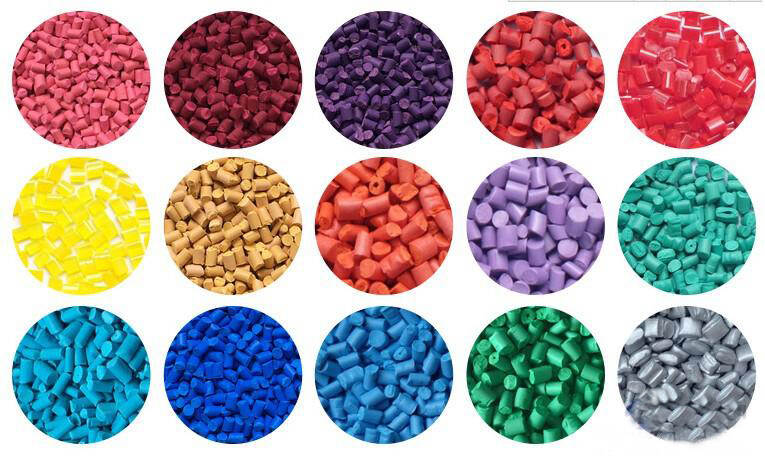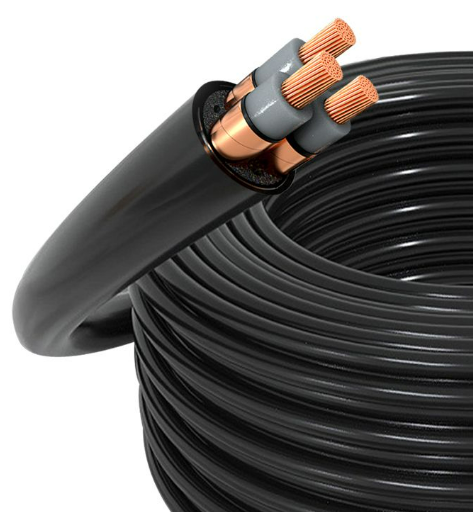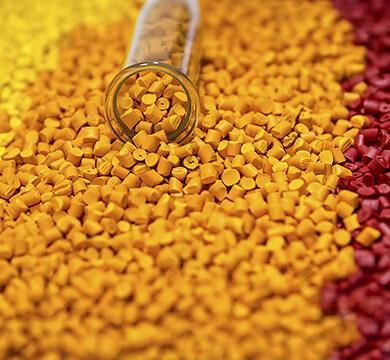Email format error
Email cannot be empty
Email already exists
6-20 characters(letters plus numbers only)
The password is inconsistent
Email format error
Email cannot be empty
Email does not exist
6-20 characters(letters plus numbers only)
The password is inconsistent

Offer Technical Support and Customized Solutions
The company is committed to creating new and improved plastic materials to meet the evolving demands of the market.

Engineering Plastics granules in Cable Construction: Key Benefits and Applications
With the advancement of science and technology and the development of cable technology, engineering plastics have gradually occupied an important position in the cable industry. Engineering plastics have better mechanical properties, heat resistance, chemical resistance, flame retardancy and other characteristics than ordinary plastics, which makes them widely used in the manufacture of cables. The application of engineering plastic particles in cables can effectively improve the comprehensive performance of cables and meet more stringent electrical and environmental requirements.
This article will explore the application and advantages of several common engineering plastic particles in cables.
1. Polyamide (PA) - Nylon
Polyamide (PA), commonly known as nylon, is an engineering plastic with excellent mechanical properties. It is widely used in cable sheaths, connectors, cable outer sheaths, and cable insulation layers for some special applications. The advantages of PA materials are their high strength, wear resistance, corrosion resistance and impact resistance.
Heat resistance: PA has good high temperature resistance and is suitable for cables in high temperature environments, such as engines, industrial equipment, etc.
Wear and impact resistance: Nylon material has good wear resistance and can be used in environments with high mechanical stress. It is suitable for cables that need to withstand friction or impact for a long time.
Hygroscopicity: One disadvantage of PA material is that it has strong hygroscopicity, which may affect its performance in a humid environment. Therefore, modified PA (such as glass fiber reinforced PA) is usually required to improve this problem.
2. Polycarbonate (PC)
Polycarbonate (PC) is an engineering plastic with high transparency, high strength and impact resistance. PC material has excellent impact resistance, good electrical properties and high temperature resistance, so it is widely used in the insulation layer and protective layer of cables.
Impact resistance: PC has very high impact strength and can effectively protect cables from mechanical damage. It is suitable for cables in high-risk and high-mechanical stress environments.
Temperature resistance: PC has high temperature resistance and can maintain stable electrical properties at high temperatures, which is suitable for use in high temperature environments.
Transparency: PC has good transparency and is sometimes used in cable applications that require special visualization for easy detection.
3. Polyphenylene sulfide (PPS)
Polyphenylene sulfide (PPS) is an engineering plastic with strong high temperature resistance and chemical corrosion resistance. The application of PPS materials in the cable industry is mainly concentrated in occasions that require extremely high thermal stability and corrosion resistance, especially for cables requiring higher performance.
High temperature resistance: PPS can be used for a long time at temperatures up to 260°C, and is suitable for cables in high temperature environments, such as cables in electronic equipment and aerospace fields.
Chemical stability: PPS has strong corrosion resistance to chemicals such as acids, alkalis, and solvents, and can effectively protect cables from erosion by chemical media.
Mechanical properties: PPS has good rigidity and wear resistance, and is suitable for cables that operate for a long time in harsh environments.
4. Polyoxymethylene (POM)
Polyoxymethylene (POM), also known as DuPont material, has high mechanical strength, rigidity and wear resistance, and is widely used in components such as cable connectors and cable outer sheaths.
Abrasion resistance: POM has excellent wear resistance and is suitable for cable components that require anti-friction.
Low friction coefficient: The low friction characteristics of POM make it suitable for some cable applications that need to reduce friction, especially in cable sheaths and wire connection parts that require flexibility and wear resistance.
Excellent dimensional stability: The low moisture absorption and stable dimensional characteristics of POM enable it to maintain good performance under various environmental conditions.
5. Polyester (PBT)
Polybutylene terephthalate (PBT) is an engineering plastic with excellent electrical properties and good mechanical properties. It is widely used in cable outer sheaths, connectors and other occasions that require high temperature resistance, pressure resistance and corrosion resistance.
High temperature resistance: PBT has high thermal stability and is suitable for cables in higher temperature environments, such as automotive and industrial cables.
Electrical properties: PBT has good electrical insulation, which can effectively prevent current leakage and ensure the safe operation of cables.
Corrosion resistance: PBT has good chemical stability and can resist the erosion of some solvents, oils and other chemicals. It is suitable for industrial cables that require corrosion resistance.
6. Polytetrafluoroethylene (PTFE)
Polytetrafluoroethylene (PTFE), also known as Teflon, is an engineering plastic with extremely high temperature resistance, chemical resistance and electrical insulation properties. It is often used in cables that require extreme environmental protection.
High temperature resistance: PTFE can work stably in environments up to 260°C and is suitable for use as the insulation layer of high-temperature cables, especially in aerospace and high-end electronic equipment.
Chemical resistance: PTFE can resist corrosion from almost all chemicals and is particularly suitable for cable applications in the chemical, pharmaceutical and other fields.
Low friction: PTFE has a low coefficient of friction and is suitable for cable applications that require low friction or are not easy to wear.
7. Polyurethane (TPU)
Polyurethane (TPU) is an engineering plastic with high elasticity, wear resistance and UV resistance. It is usually used as the outer sheath material of cables, especially in environments that require high flexibility, wear resistance and stretch resistance.
Flexibility: The high flexibility of TPU material makes it suitable for cable applications that require frequent bending, movement or stretching, such as robots, mobile devices, etc.
Abrasion resistance: TPU has excellent abrasion resistance and can maintain a long service life in high friction environments.
UV resistance: TPU can withstand strong UV radiation, so it is suitable for cable outer sheaths in outdoor environments.
Conclusion
The application of engineering plastic particles in cables not only improves the basic functions of cables such as mechanical strength, temperature resistance, and electrical performance, but also meets the needs of various special environments. By selecting suitable engineering plastic materials, the overall performance of the cable is significantly improved, especially in terms of high temperature, corrosion resistance, flexibility and flame retardancy. With the continuous advancement of material technology, more innovative engineering plastics will be used in the cable field in the future, providing safer and more reliable cable solutions for industries such as power, communications, automobiles, and aerospace.

